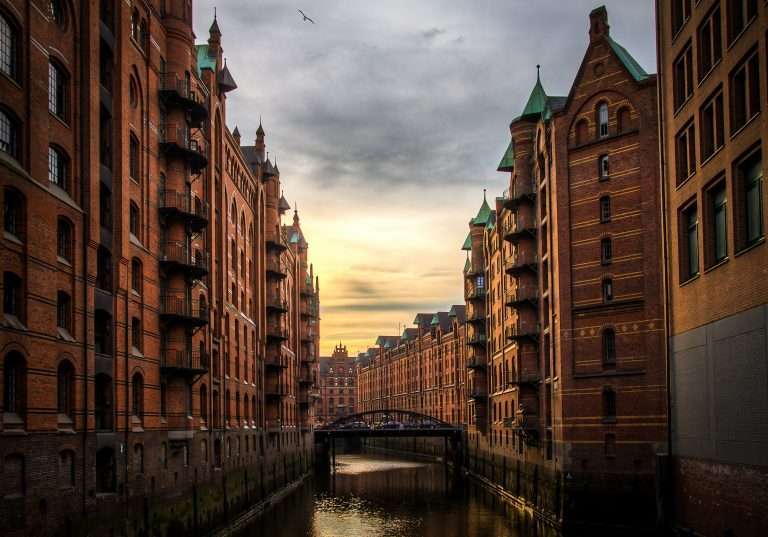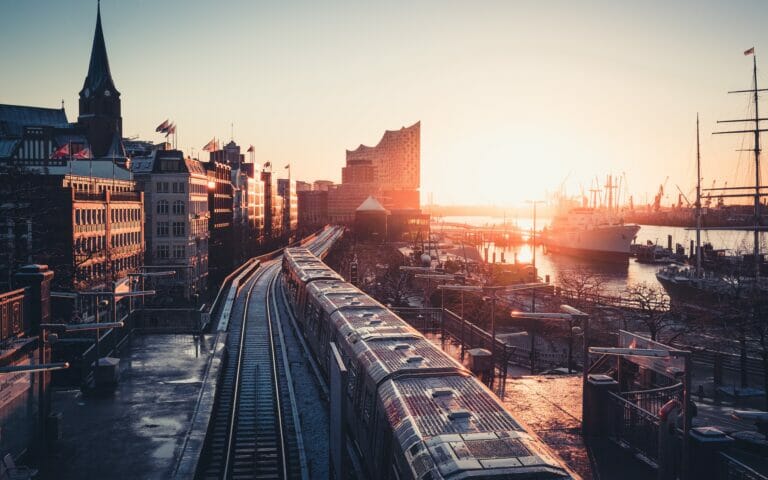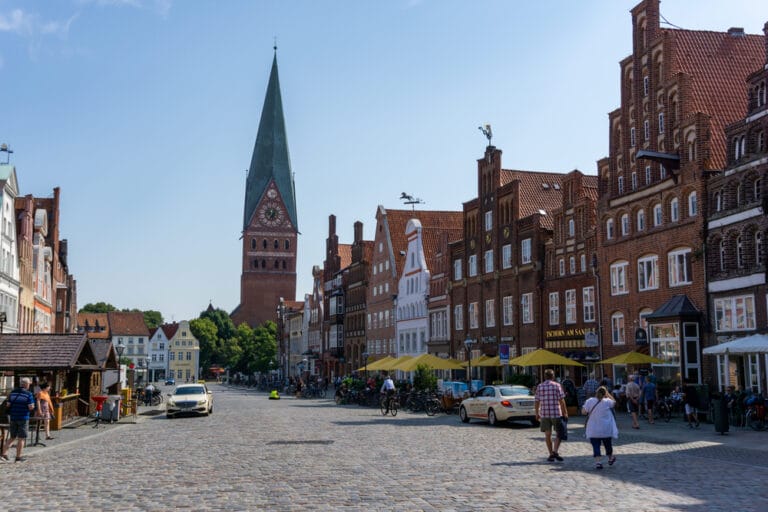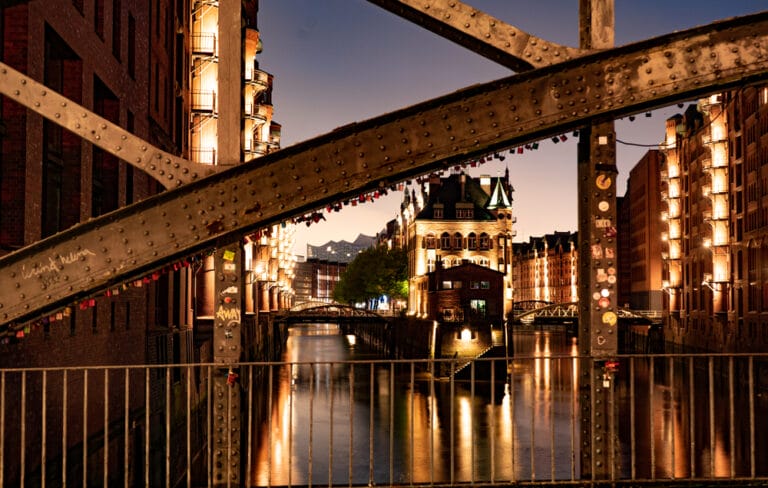Exploring the Best Cities Near Hamburg
Hamburg, a bustling city in northern Germany, is known for its vibrant culture, stunning architecture, and bustling port.
However, there are many other cities nearby that are worth exploring. In this blog post, we’ll take a look at some of the hidden gems in the area that are often overlooked by tourists.
From the medieval charm of Lüneburg to the seaside beauty of Kiel, so if you are wondering about exploring the cities near Hamburg then in the post we are talking about all of them which you can plan.
These could also be some of them which are suitable for weekend trips from Hamburg so you can make a note of them.
Exploring the Cities Near Hamburg
Lübeck: A UNESCO World Heritage Site
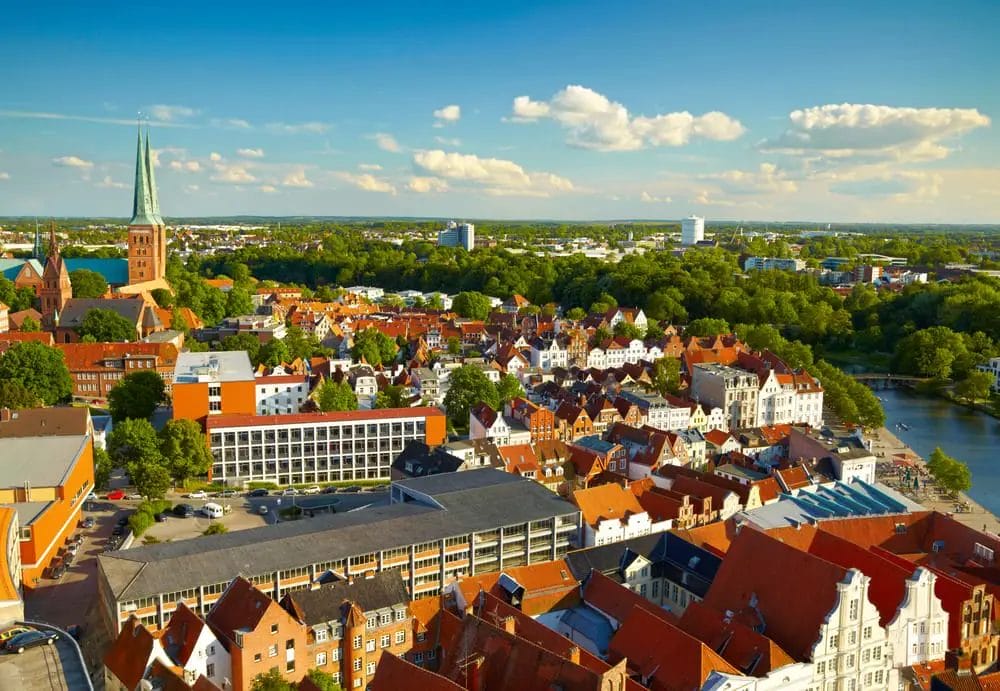
Lübeck is a beautiful city with a rich history that dates back to the 12th century. It’s known for its stunning Gothic architecture, charming old town, and its famous marzipan.
The city is a UNESCO World Heritage Site and is definitely worth a visit for history buffs and architecture enthusiasts.
The Holstentor, a medieval city gate, is one of the most iconic landmarks in Lübeck and is a must-see attraction.
The city is also home to numerous churches, including the St. Mary’s Church, which boasts the highest brick vault in the world.
Bremen: A City of History and Culture
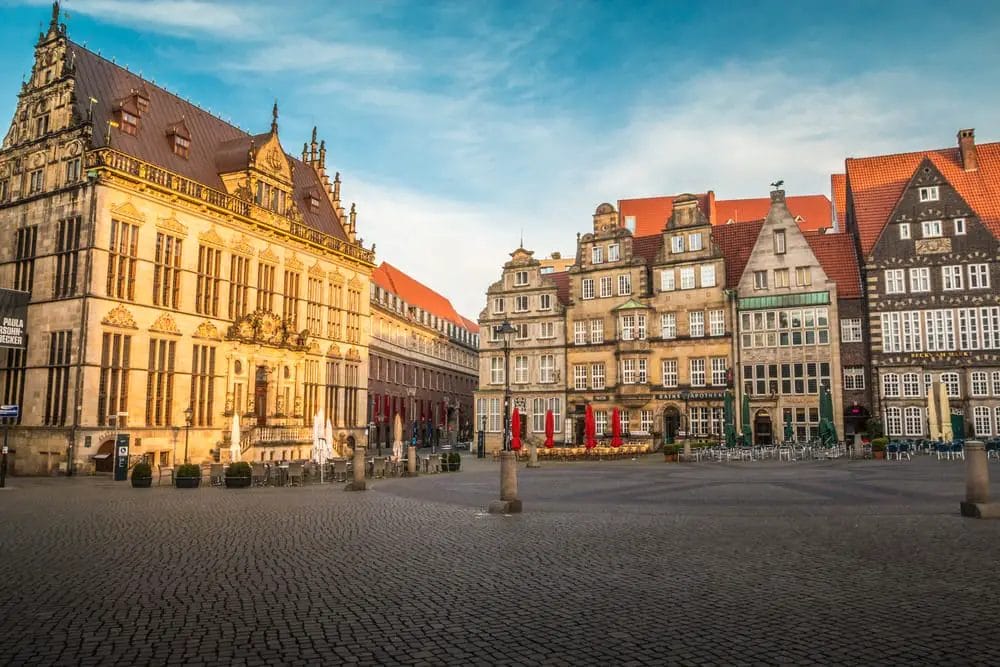
Bremen is a city with a long history and a vibrant cultural scene. It’s located on the Weser River and is known for its picturesque old town and beautiful architecture.
One of the most famous attractions in Bremen is the Bremen Town Musicians statue, which depicts the characters from the Brothers Grimm fairy tale.
The statue has become a symbol of the city and is a popular tourist attraction. Another iconic landmark in Bremen is the Bremen Roland statue, which represents freedom and justice.
In addition to its historical attractions, Bremen also has a thriving arts and music scene. The city is home to several theaters, museums, and art galleries, where visitors can immerse themselves in the local culture.
Bremen is also known for its lively music scene, with numerous live music venues and festivals throughout the year. Whether you’re interested in history, art, or music, Bremen has something to offer for everyone.
Kiel: A Seaside Destination
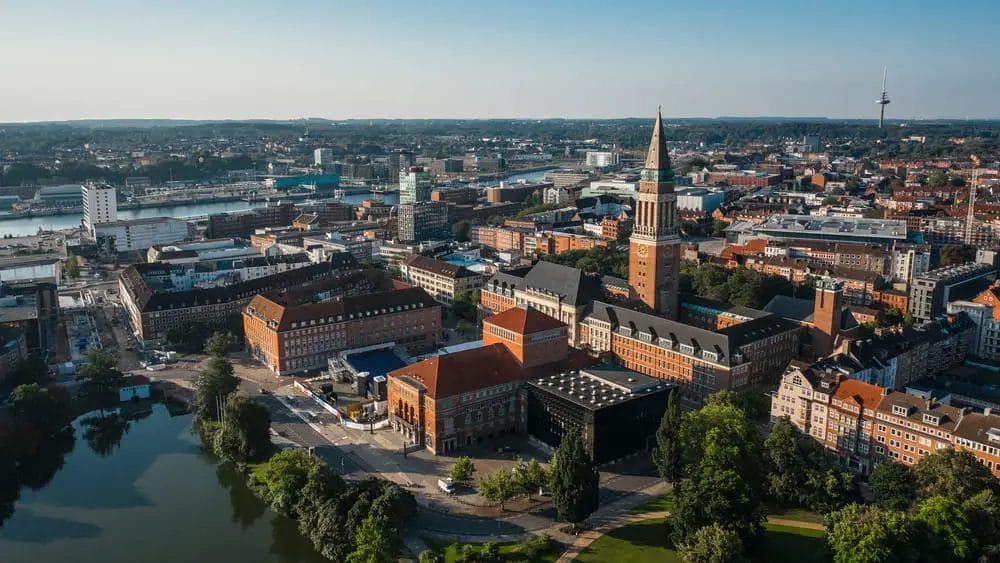
Kiel is a city on the Baltic Sea and is known for its beautiful beaches and maritime heritage. The city has a laid-back vibe and is a great place to relax and enjoy the seaside.
One of the highlights of Kiel is the Kiel Week sailing regatta, which is the largest sailing event in the world. During this week-long event, the city comes alive with sailing competitions, live music, and cultural performances.
Visitors can also explore the Maritime Museum, which showcases the city’s rich maritime history.
In addition to its maritime attractions, Kiel also offers plenty of opportunities for outdoor activities. The city is surrounded by beautiful nature reserves and parks, where visitors can go hiking, biking, or simply enjoy a picnic by the sea.
Kiel is also home to several spas and wellness centers, where visitors can indulge in relaxation and rejuvenation. Whether you’re a sailing enthusiast or simply looking for a peaceful seaside getaway, Kiel is a great destination to explore.
Lüneburg: A Medieval Town with Charm
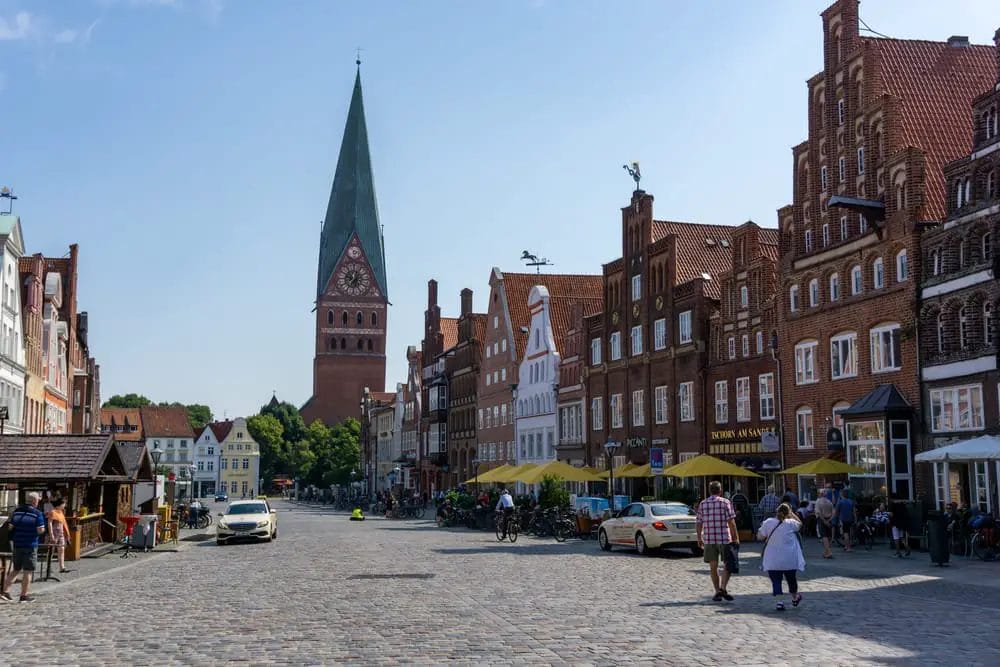
Lüneburg is a small town located about 50 kilometres southeast of Hamburg. Despite its size, it’s known for its rich history and beautiful medieval architecture. The town’s historic center is a UNESCO World Heritage Site and is a great place to explore on foot. The colorful half-timbered houses, cobblestone streets, and charming squares make Lüneburg a picturesque destination.
One of the highlights of Lüneburg is its salt mines. The town was once one of the most important salt-producing cities in Europe, and visitors can learn about its salt mining history at the German Salt Museum.
The museum offers guided tours of the underground salt mines, where visitors can learn about the mining process and the importance of salt in the region’s history.
In addition to its historical attractions, Lüneburg also offers a vibrant cultural scene. The town is home to several theatres, art galleries, and music venues, where visitors can immerse themselves in the local arts and culture.
Lüneburg is also known for its lively nightlife, with numerous bars and clubs that cater to all tastes. Whether you’re interested in history, culture, or nightlife, Lüneburg has something to offer for everyone.
Read More: Day Trip from Hamburg to Lunenburg
Schwerin: A City of Castles and Lakes
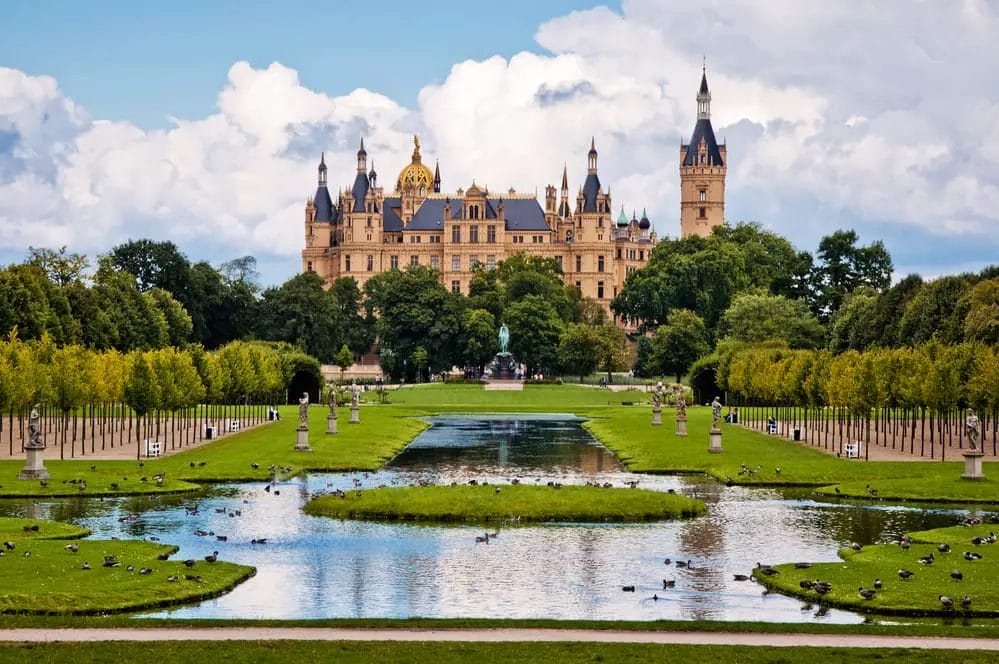
Schwerin is a city located about 100 kilometres west of Hamburg and is known for its natural beauty. The city is home to the beautiful Schwerin Castle, which is situated on an island in Lake Schwerin.
The castle is one of the most important historic buildings in Germany and is a must-see attraction for visitors. The castle’s stunning architecture, beautiful gardens, and picturesque location make it a popular destination for tourists.
In addition to its castle, Schwerin is surrounded by numerous lakes, making it a great destination for outdoor enthusiasts. Visitors can go boating, fishing, or simply enjoy a stroll along the lakeside promenade. The city is also home to several parks and nature reserves, where visitors can go hiking or have a picnic surrounded by nature.
Schwerin also offers plenty of cultural attractions for visitors to enjoy. The city is home to several museums and art galleries, where visitors can learn about the region’s history and culture.
The Mecklenburg State Theatre is another popular attraction in Schwerin, offering a wide range of performances including opera, ballet, and theatre. Whether you’re interested in history, nature, or culture, Schwerin has something to offer for everyone.
Read More: Things to do in Schwerin
Rostock: A Vibrant University Town
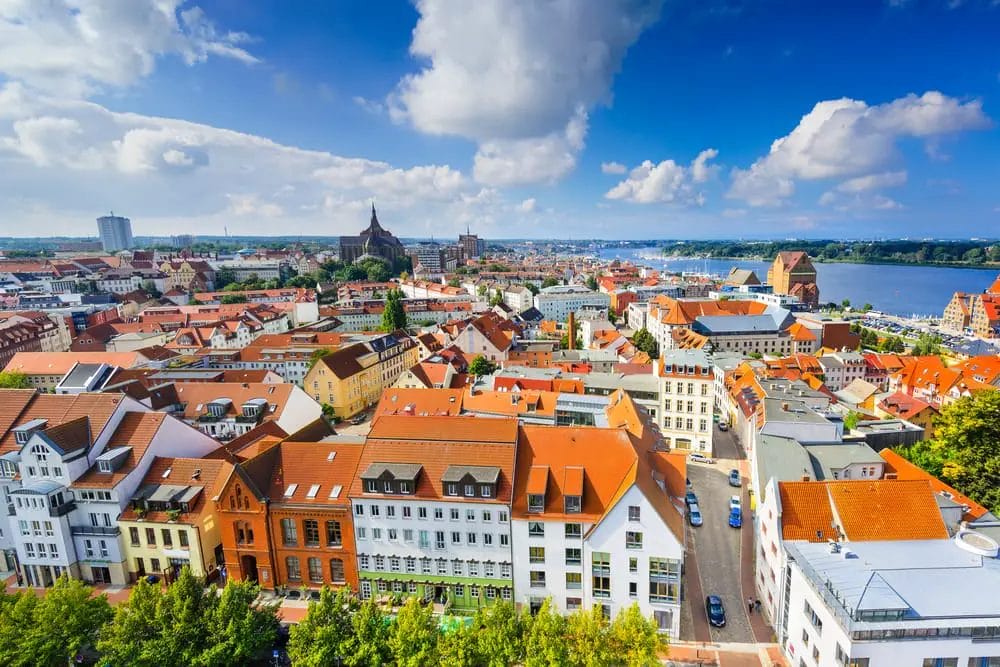
Rostock is a city located on the Baltic Sea and is known for its vibrant energy and lively student scene. The city is home to the University of Rostock, one of the oldest universities in the world, and has a thriving student population. This gives Rostock a youthful and dynamic atmosphere, with numerous cafes, bars, and clubs that cater to the student crowd.
Rostock offers a vibrant nightlife and a variety of cultural attractions. The city is known for its beautiful architecture, including historic buildings and churches. The Rostock Town Hall, with its Gothic architecture, is a notable landmark. Museums and art galleries in the city provide opportunities to learn about the region’s history and culture.
For beach lovers, Rostock has several stunning beaches along the Baltic Sea. The Warnemünde beach, located near Rostock, is particularly popular and offers various activities for visitors.
Flensburg: A City with a Danish Influence
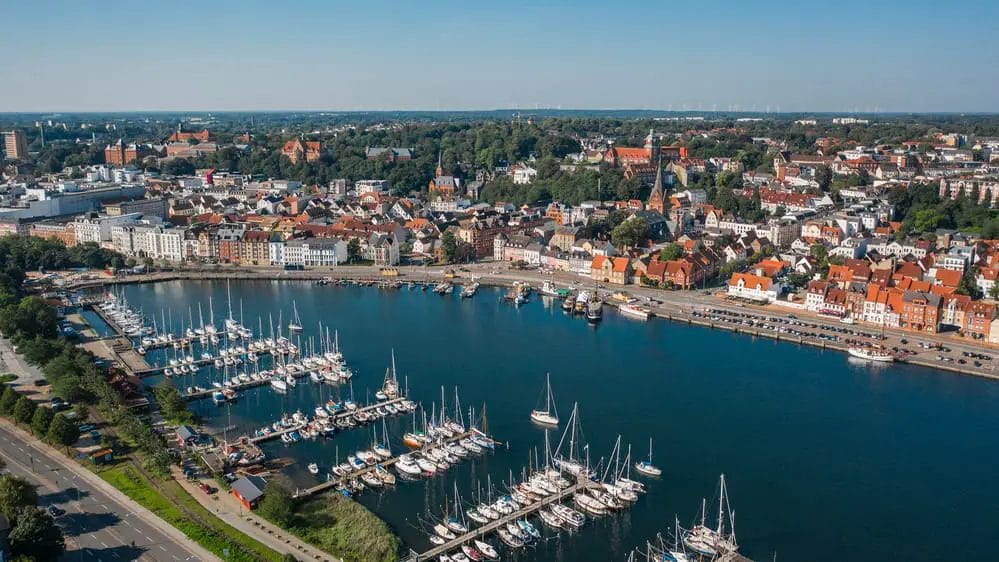
Flensburg is a city located on the German-Danish border and is known for its unique history and strong Danish influence. The city was once part of Denmark and still retains a distinct Danish character. The Danish influence can be seen in the city’s architecture, cuisine, and culture.
One of the highlights of Flensburg is its beautiful architecture. The city is home to numerous historic buildings, including the Flensburg Town Hall and the St. Nikolai Church. Visitors can explore the charming old town, with its narrow streets, colourful houses, and picturesque squares. The city is also known for its lively cultural scene, with numerous theaters, art galleries, and music venues that showcase local talent.
Flensburg is also a great destination for food lovers. The city is known for its delicious seafood, Danish pastries, and craft beer. Visitors can sample the local cuisine at one of the many restaurants and cafes in the city, or visit the Flensburg Brewery to learn about the brewing process and taste the local beer.
Stade: A Picturesque Hanseatic City
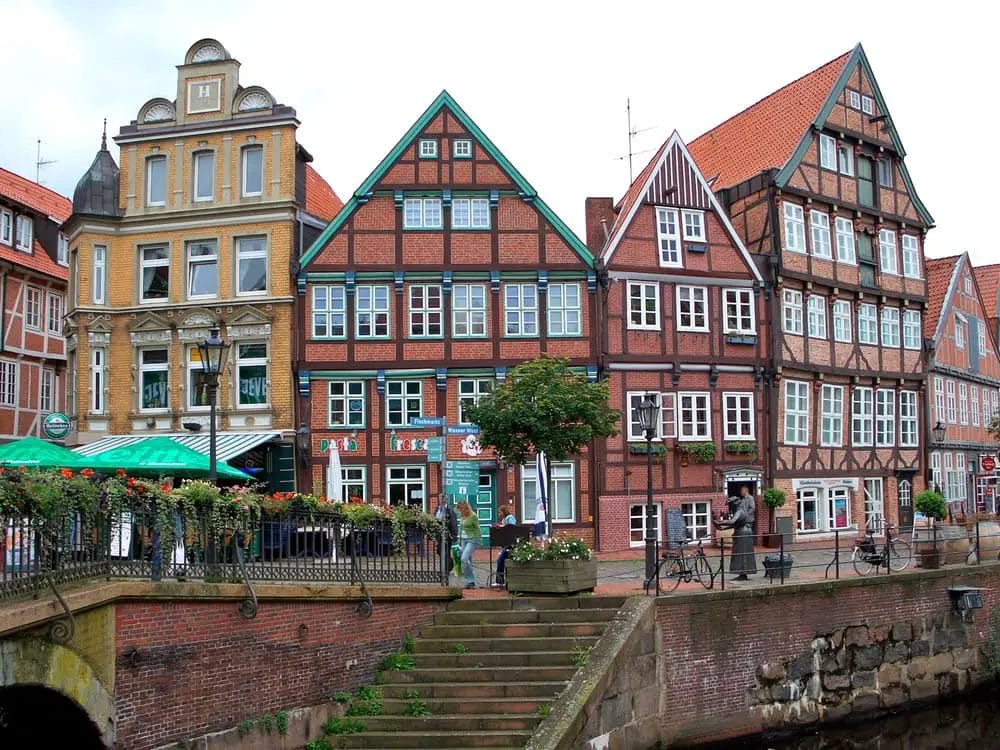
Stade is a small city located about 50 kilometers west of Hamburg and is known for its picturesque beauty and rich history. The city was once an important Hanseatic city and is full of beautiful architecture that reflects its prosperous past. Visitors can explore the charming old town, with its narrow streets, half-timbered houses, and historic buildings.
One of the highlights of Stade is its beautiful churches. The St. Cosmae Church, with its stunning Gothic architecture, is one of the most iconic landmarks in the city. Visitors can also visit the Schwedenspeicher Museum, which showcases the city’s history as a trading center during the Hanseatic period.
Stade is also a great destination for nature lovers. The city is located on the banks of the River Elbe and offers plenty of opportunities for outdoor activities. Visitors can go hiking or biking along the river, or take a boat trip to explore the surrounding countryside. The city is also home to several parks and gardens, where visitors can relax and enjoy the peaceful atmosphere.
Ratzeburg: A Small Town with a Big Lake
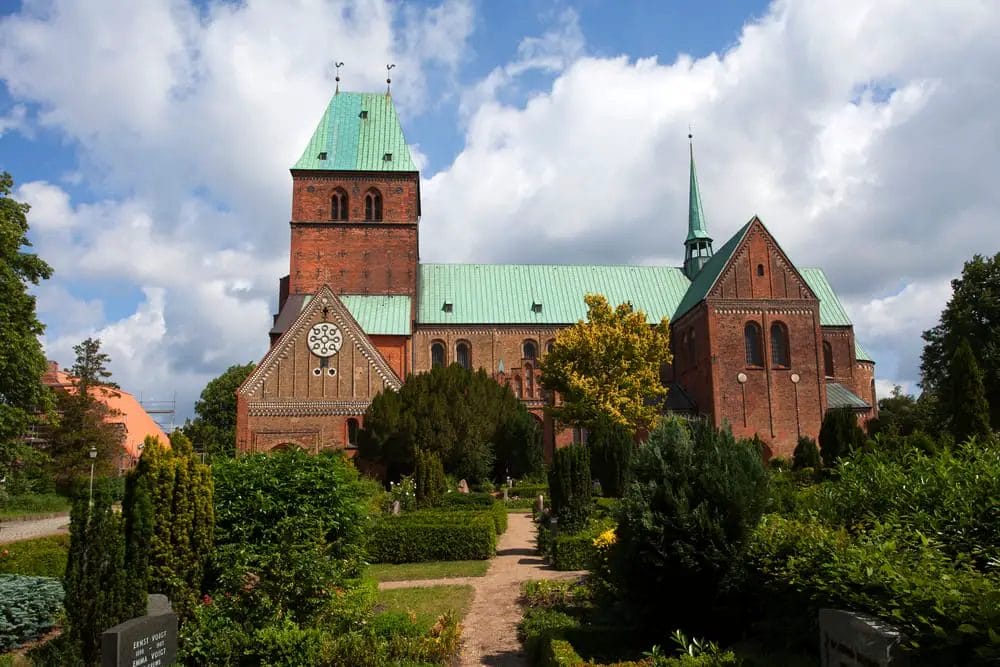
Ratzeburg is a small town situated about 60 kilometers northeast of Hamburg. It is known for its natural beauty and is located on the shores of Lake Ratzeburg, one of the largest lakes in northern Germany. The lake offers opportunities for water sports such as sailing, kayaking, and fishing. Visitors can also take boat trips to explore the lake and enjoy the scenic views.
Aside from its natural attractions, Ratzeburg is also rich in cultural and historical landmarks. One notable landmark is the Ratzeburg Cathedral, which is one of the oldest brick buildings in northern Germany. The cathedral offers panoramic views of the surrounding countryside from its tower.
For those interested in history and culture, Ratzeburg has a fascinating past that dates back to the 11th century. The town features historic buildings, charming narrow streets, half-timbered houses, and a historic market square in its old town area. Additionally, there are several museums and art galleries where visitors can delve into the region’s history and culture.
Wismar: A Hidden Gem on the Baltic Sea
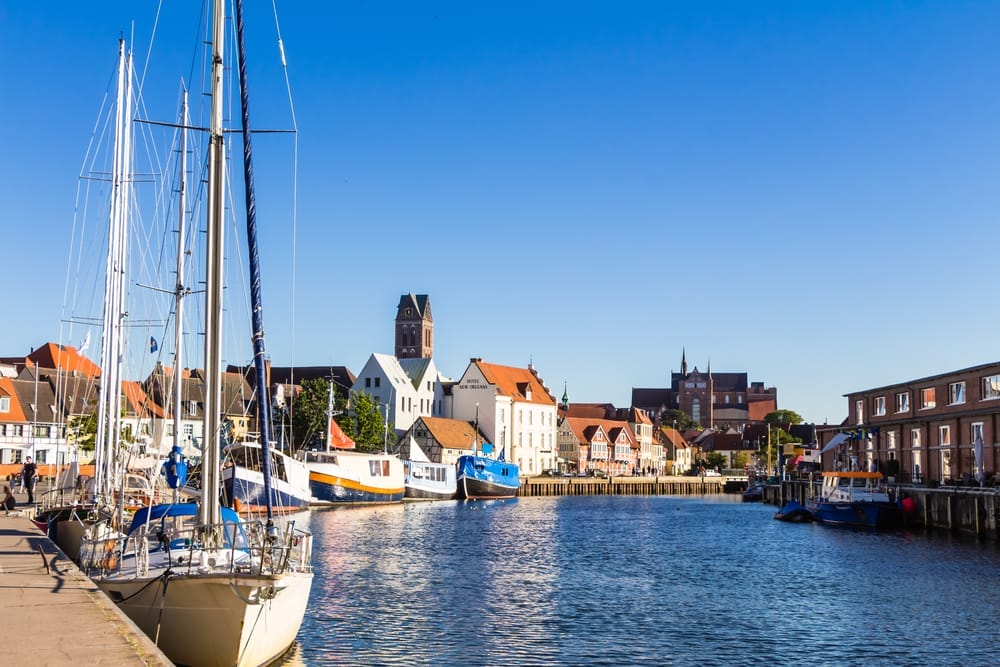
Wismar is a small city located on the Baltic Sea that is often overlooked by tourists. However, it’s a hidden gem that offers plenty of attractions for visitors to enjoy. The city is known for its beautiful architecture, with numerous historic buildings that reflect its prosperous past as a trading center.
One of the highlights of Wismar is its UNESCO World Heritage Site, the Historic Centrum. This area is home to several well-preserved medieval buildings, including the Wismar Market Square, the St. George’s Church, and the Wasserkunst, a historic water tower. Visitors can explore the charming old town, with its narrow streets, colourful houses, and picturesque squares.
Wismar is also a great destination for art lovers. The city is home to several art galleries and museums, where visitors can admire works by local and international artists. The Wismar Art Museum is one of the most popular attractions in the city and offers a wide range of exhibitions and events throughout the year.
Conclusion: Exploring Hamburg’s Surrounding Cities
Hamburg is a great city with a lot to offer, but there are many other cities nearby that are worth exploring. From the medieval charm of Lüneburg to the seaside beauty of Kiel, there’s something for everyone in the surrounding cities of Hamburg.
Whether you’re interested in history, culture, nature, or simply relaxing by the sea, the area has something to offer for everyone. So if you’re planning a trip to Hamburg, be sure to take some time to explore the surrounding cities as well. You won’t be disappointed!
Get your Notion Travel Planner Template!
Embark on your next adventure with the Wanderlust Planner, the ultimate Notion Travel Planner Template. Organize your wanderlust-fueled dreams and turn them into unforgettable journeys. Whether you’re a seasoned globetrotter or a newbie explorer, this template has you covered.


